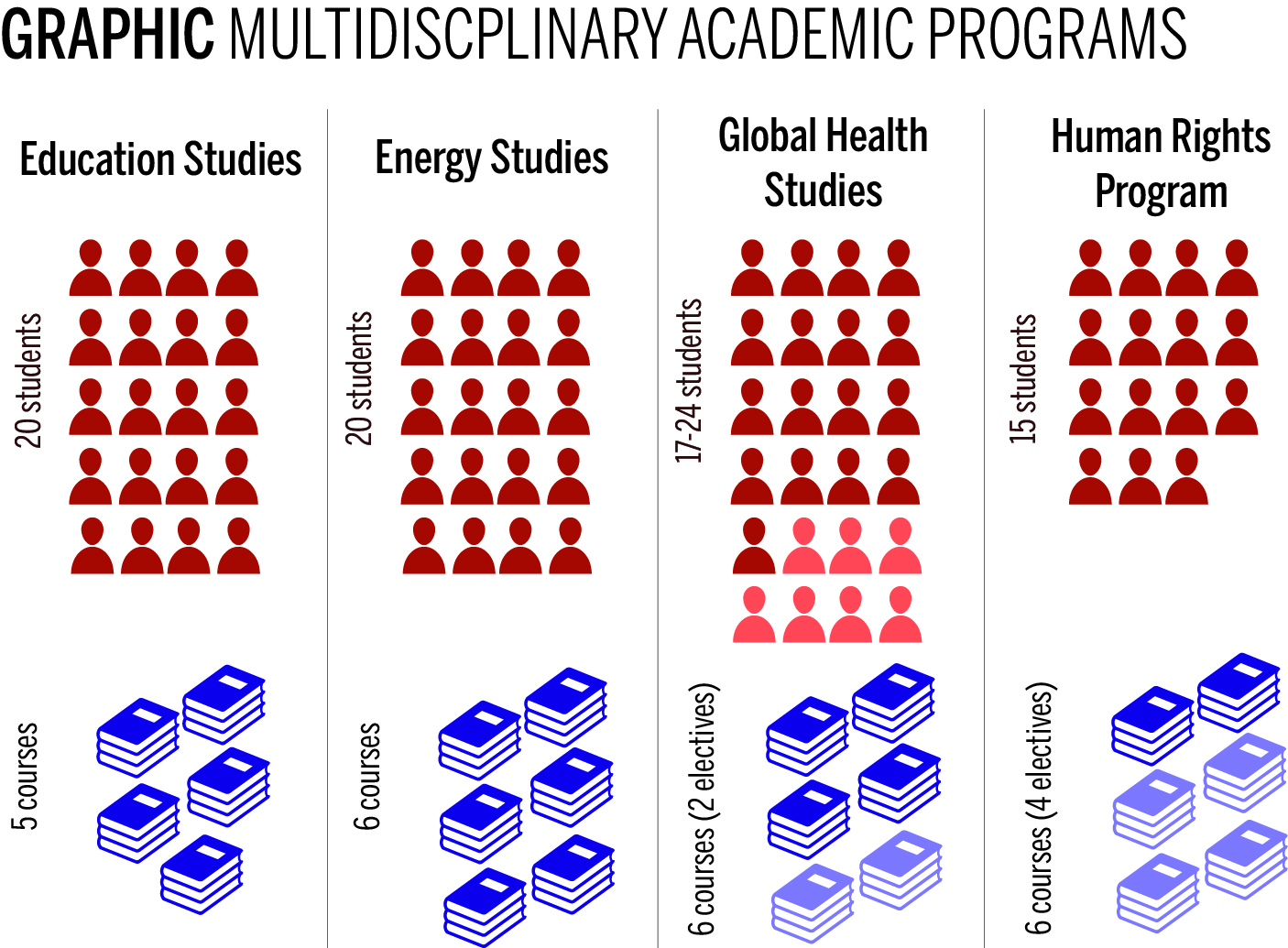
Fourteen students will graduate from Yale College this May with certificates in Human Rights, having completed the requirements for the newest of Yale’s four Multidisciplinary Academic Programs.
Yale’s four multidisciplinary programs allow students from different majors to explore more focused areas of study. The slate of program includes Education Studies, Energy Studies, Global Health Studies and Human Rights.
This year’s 14 Human Rights Scholars, who will be the second-ever class since the program began, span 10 different majors, including math and philosophy, modern Middle East studies and political science. The diversity of students’ academic backgrounds is what makes Yale’s Multidisciplinary Academic Programs so unusual, according to Hope Metcalf ’96, the executive director of the Orville H. Schell, Jr. Center for International Human Rights and the program administrator for the Human Rights program at Yale.
“We just had our graduating class of seniors, and if you look at their capstone projects, there was an unbelievable variety,” Metcalf said.
The Human Rights class of 2017 senior capstone projects had titles ranging from “‘Geovani’: A Human Rights Screenplay about Central American Asylum-Seeking Children and the Lawyers Who Defend Them” to “Teaching Human Rights: Re-Assessing the Relevance of Caribbean Social Studies.”
James Silk LAW ’89, the founder and director of Yale’s Human Rights Program, who recently watched his first cohort of Human Rights scholars graduate, said he was impressed with his students’ work.
“It was extraordinary to watch the way they could talk to each other about the most sensitive, controversial issues, often disagreeing, but always having conversations in a way that was respectful and caring,” Silk said. “It showed this trust that I think developed by being in the program together.”
Metcalf emphasized the importance of having people from a variety of academic backgrounds and specialties work on human rights problems, noting that many of the people who have enacted positives changes in the realm of human rights were not lawyers, but rather religious figures, artists and journalists.
The class of 2018 will also have 23 Global Health Scholars, with graduates majoring in 11 different areas, including molecular, cellular and developmental biology, economics and anthropology.
Kristina Talbert-Slagle GRD ’10, program director for Global Health Studies, noted how the programs allow coursework and fieldwork that cut across a wide variety of majors and disciplines.
“For example, students in the Global Health Studies MAP have the opportunity to study how media portrayals affect health, how race and ethnicity affect a person’s health outcomes, how conflict and political structures affect health, how biological factors affect health,” she said. “Sometimes they even do all of this in one class.”
Each of the programs has a distinct set of requirements for its students. Global Health Studies has four required courses and two electives, whereas Education Studies requires its students to take five approved Education Studies electives.
Prospective students may apply to the multidisciplinary programs in the fall of their sophomore year. From each applicant pool, around 15 to 25 students, depending on the program, are accepted to start each program in their sophomore year. The Education Studies Program reports an acceptance rate of 50 percent for their 2016 cohort of Education Studies Scholars, and acceptance rates for some of the other programs are even lower.
While the programs are competitive, their small size allows for the creation of a tight-knit community of students with common interests.
Metcalf said that one benefit of the structure of the Human Rights Program model is that it encourages students to learn from one another. When creating the cohort of 15 Human Rights Scholars, the program leaders ensure there is a spread of interests, commitments, passions and backgrounds. The scholars also partake in weekly dinners, which often feature guests who work in the Human Rights field.
Jared Michaud ’19, a theater studies major and Education Studies Scholar, shared these feelings about his own multidisciplinary program, saying that “the idea of having this cohort that meets all the time to discuss education is special.”
Michaud said the flexibility of the program represents both a pro and a con. “Because this [is] a five- to six-credit program, there are so many great Education Studies Program classes, but not enough room in my schedule,” he said. “I can specialize and pursue my interests, but I don’t have a huge background of knowledge because of the limited amount of credits.”
The class of 2017 had 20 Energy Studies graduates and 20 Education Studies graduates.
Sammy Westfall | sammy.westfall@yale.edu







